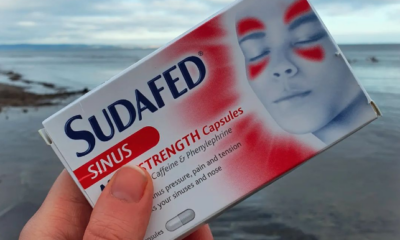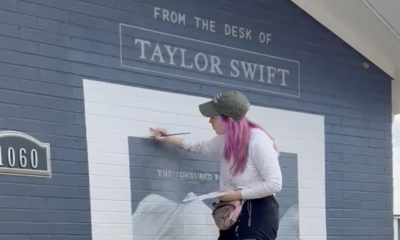NEWS
Nobel Prize in Medicine Goes to Katalin Karikó and Drew Weissman for Their Work on mRNA Vaccines
Published
7 months agoon

Courtesy of nobelprize_org/Instagram
The 2023 Nobel Prize in Physiology or Medicine was awarded to Katalin Karikó and Drew Weissman for their work on mRNA vaccines, which have been instrumental in the fight against the COVID-19 pandemic, the Nobel Committee in Sweden announced Monday.
Discoveries by Karikó and Weissman “fundamentally changed our understanding of how mRNA interacts with our immune system,” and contributed to the “unprecedented rate of vaccine development during one of the greatest threats to human health in modern times,” the committee said in a statement.
Vaccines are used to stimulate an immune response to a pathogen, training our bodies to fight it off when we encounter the pathogen later. Vaccines in the past have been produced based on whole virus cells that are weakened or dead, by using only a virus’s surface proteins, or by using parts of a virus’s genetic code in a harmless “carrier” virus.
Each of those methods requires large-scale cell culture, which is resource intensive, making rapid production in response to outbreaks difficult or impossible. But mRNA vaccines don’t require cell culture.
Genetic information encoded in DNA is transferred to messenger RNA, or mRNA, which is used as a template for protein production. In the 1980s, scientists developed methods for producing mRNA without cell culture, called in vitro transcription, but mRNA produced in this way was unstable and caused inflammatory reactions.
Karikó and Weissman discovered that dendritic cells, which initiate immune responses, recognized in vitro transcribed mRNA as a foreign substance, and initiated an inflammatory response. They investigated how the in vitro mRNA differed from mRNA found in mammalian cells, and tested a variety of alterations to make in vitro mRNA operate more like mammalian mRNA.
In a series of studies, Karikó and Weissman showed that mRNA generated with their base modifications reduced inflammatory responses and increased protein production.
Their breakthrough paved the way for two base-modified mRNA vaccines to be developed for COVID-19 at record speed.
Karikó, a Hungarian-American biochemist and senior vice president at BioNTech RNA Pharmaceuticals, and Weissman, an American physician, are both professors at the University of Pennsylvania.
“During the biggest public health crisis of our lifetimes, vaccine developers relied upon the discoveries by Dr. Weissman and Dr. Karikó, which saved innumerable lives and paved a path out of the pandemic,” J. Larry Jameson, executive vice president of UPenn’s School of Medicine, said in a statement. “More than 15 years after their visionary laboratory partnership, Kati and Drew have made an everlasting imprint on medicine.”
TMX contributed to this article.
More From Lifestylogy
-


Singapore: Marina Bay Sands Hosts Taylor Swift Eras Tour Trail…
-


This is why I returned the Apple Vision Pro. Its…
-


Taylor Swift Eras Tour Melbourne, Australia Night 1: This is…
-


Smiling Emoji Graces Las Vegas Sphere
-


Taylor Swift Eras Tour – Tokyo Night 1: Friendship Bracelet…
-


Madonna Kicks Off Celebration Tour With Daughters Sharing Stage: Estere,…
-


Chick-fil-A’s New Cauliflower Sandwich. The Company to Begin Testing in…
-


FDA Panel Says Common Over-The-Counter Decongestant Doesn’t Actually Work
-


Taylor Swift The Tortured Poets Department Mural Painted At Grimey’s…
